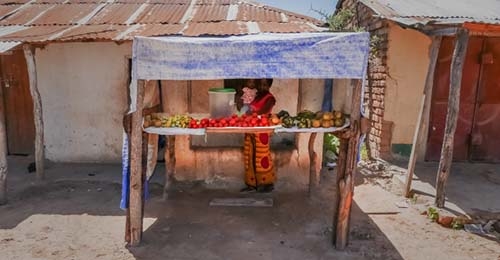Abortion in Tanzania is common, but clandestine
“I knew what I had to do, but I didn’t know where to do it,” Mwema explained. Like over 1 million Tanzanian women, Mwema* had an unintended pregnancy. As a single mother caring for three young children, she knew she did not have the time or money to support another child. “I sell vegetables in the market for money – it’s not much, but my family is healthy now. I know the balance will be off if there is one more,” she shared.
Mwema knew many women who had been in her position – she knew abortion was an option, but had no information on how to access a safe one. “I was afraid to ask for information because even though so many women do it, it’s not spoken about. From what I’d heard, some girls died after seeing fake doctors or going to the village to see healers and I was afraid.”
This fear and consequent ignorance of safe abortion options is life threatening. The Tanzanian Ministry of Health reports 16 percent of maternal deaths are due to complications from abortion, and regional studies have shown it to be higher.
Ambiguity in Tanzanian abortion law and enforcement creates fatal uncertainty for women and medical practitioners, leading many to seek unsafe abortion from unskilled providers. Vanessa Woog, researcher at the Guttmacher Institute, reported, “In a study of women who were admitted to a hospital with complications from an induced abortion, 46% of those in rural areas and 60% of those in urban areas reported that the abortion had been performed by an unskilled provider.” Legal vagueness also allows practitioners and pharmacists to set exorbitant prices for services and medication, creating more barriers to access for Tanzanian women.
Finding safe options
Mwema had heard of some hospitals and pharmacies where she could get abortion pills, but the rumored prices deterred her – “I had nothing extra to spend. I thought about using cheap detergent myself, but I worried it would make me sicker.” Many Tanzanian women turn to unsafe methods including herbs, high doses of chloroquine, detergent, wood ashes in solution, cassava stems, twigs, and contraceptive pills. Attempting to self-induce with uncontrolled substances and without qualified medical direction can cause extreme health repercussions, including the risk of death.
Luckily, when Mwema’s neighbor and friend heard about her need, she brought her to a family planning clinic in Dar that provided misoprostol at a price she could afford. “This saved me,” she explained.
Woog noted that in Tanzania, “the majority of abortion-related deaths are preventable, as are the unintended pregnancies associated with abortion.” By clarifying and overturning restrictive abortion laws, increasing access to contraceptives, training health workers to perform abortions and to provide comprehensive post-abortion care, and making misoprostol available at an affordable price, thousands of lives can be saved.
HowToUse exists to provide accurate, data-backed information to women like Mwema who need it most. If you or someone you know needs access to safe abortion options, visit our website for more information or contact any of our three partner providers: www.safe2choose.org, www.womenhelp.org, and www.womenonweb.org.
*named changed to protect privacy
